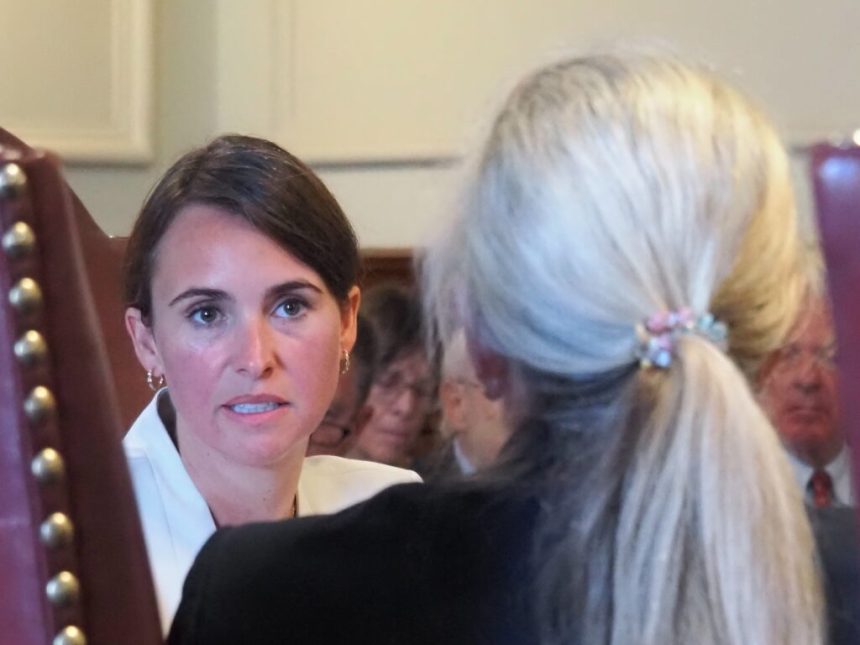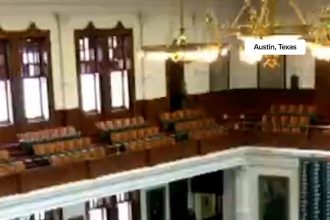Education Commissioner Caitlin Davis, shown here during her confirmation hearing in July, said on Thursday, Oct. 9, 2025, that New Hampshire has “the majority of our federal education programming funds for the full year.” (Photo by Ethan DeWitt/New Hampshire Bulletin)
Key federal funding for New Hampshire schools has not been affected by the shutdown in Washington, Department of Education Commissioner Caitlin Davis said Thursday — at least the money that flows through the state Department of Education.
That’s because the federal money for the coming school year was “forward-funded,” meaning it was given to the state department in July in advance of the current school year, Davis said.
“We have the majority of our federal education programming funds for the full year,” Davis told members of the State Board of Education at its monthly meeting Thursday. “So we’re lucky that doesn’t impact us that much.”
The pre-allocated money includes $50 million in Title I-A grants, which pass through the state agency and on to public schools with significant populations of low-income students.
It also includes funds for Title II-A, which supports efforts to train teachers and improve their effectiveness to raise student academic achievement, as well as Individuals with Disabilities Education Act (IDEA) funds, which cover a portion of public schools’ special education expenses.
In total, about $200 million in annual allocations from the U.S. Department of Education will not be affected by the shutdown, Davis said.
But assistance programs run by other agencies may be in more jeopardy. For instance, money for free and reduced-price meals from the U.S. Department of Agriculture has not been granted to New Hampshire in one lump sum, Davis said, and thus could run out. “We do have some advanced money,” Davis said, speaking on the meals program.
And other funding programs that affect public schools but are not run through the Department of Education, like Medicaid and the Supplemental Nutrition Assistance Program, could also be hurt by the shutdown, she said.
SNAP has not yet been affected by the shutdown because benefits for the state are covered through October; Medicaid also has sufficient funds to continue operating through the first quarter of the 2026 federal fiscal year, which begins Oct. 1.
The shutdown, which began after U.S. Senate Democrats refused to vote with Republicans to continue government funding in order to obtain assurances that health care subsidies will continue, entered its 10th day Friday. It has led to widespread furloughs of federal workers, including some at the Portsmouth Naval shipyard, and has forced some federal employees, such as air traffic controllers, to continue work without pay.
In a Sept. 30 press release shortly before the expected shutdown, Gov. Kelly Ayotte asserted that most state operations would not be affected and predicted “minimal impact,” at least for the first 30 days.
Davis echoed that point Thursday, noting that the front-loaded money means that all 275 positions at the state education department will continue to be paid, even though some rely on federal funds.
“We are continuing to monitor the situation on an ongoing basis and provide updates to both schools and department employees, because it can provide some unrest, as you can imagine,” Davis said.
“People hear the federal employees are not working in this time, and (ask) how does that impact our work?”









